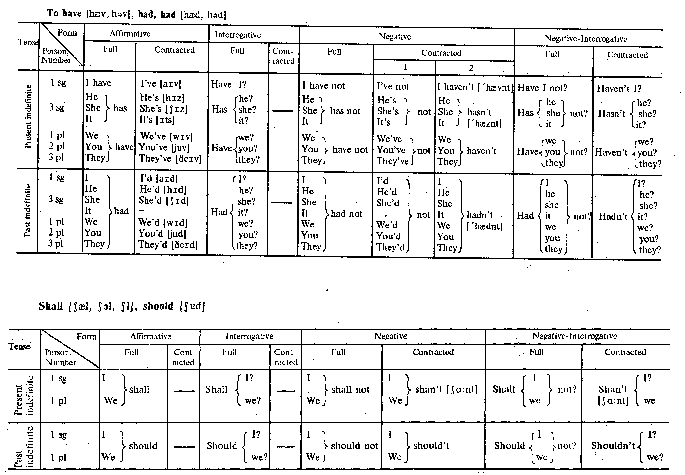
341
The bus is coming up [?
?
'b?s?z'k?m??'?p].
* The contraction of are combined with certain personal pronouns is pronounced differently is British and
American English, viz.:
British English
American English
we’re [w??]
you’re [ju?]
they’re ['?e??]
[w?r]
[jur]
[?Õr]
** In dialect and "uneducated" British and American English the form ain’t is very common. It is used as a contracted
form of am not, are not, is not, have not and has not. Ain’t is not used in standard (“correct”) English. .
I ain’t going to buy it.
Don’t talk to me like that, you ain’t my mother.
It ain’t raining, let’s go out.
I ain’t got any money.
He ain’t seen me yet.
** ‘m not is replaced by aren’t in the negative-interrogative (Aren’t I clever enough? I’m clever enough, aren’t I?)
Note:
As a future tense auxiliary shall (should) is used with the 1st person (singular and plural) only.

